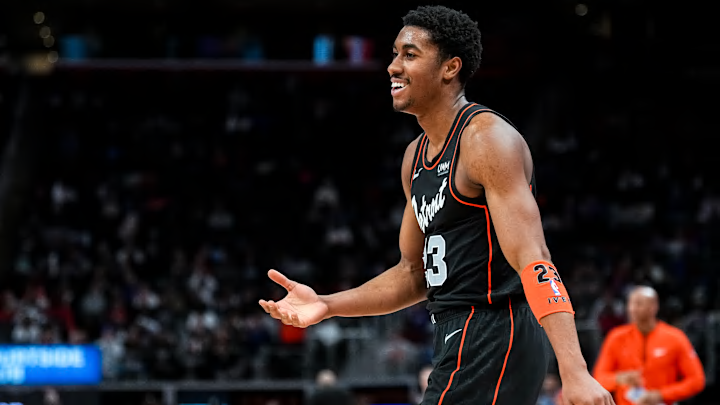The Detroit Pistons have to avoid getting into a bidding war with themselves for their own free agents.
Both Jalen Duren and Jaden Ivey are eligible for extensions this summer, and I’m sure the Pistons would love to lock them into long-term deals if the price is right, but if it’s not, they don’t have to be in a rush.
We've seen some crazy deals this summer that have Duren and Ivey's agents licking their chops for what their next contracts could look like.
The Pistons could allow them to play out the final years of their rookie deals and enter restricted free agency, where they would still have team control, but with maximum contracts now a much more risky investment and few teams with cap space, the Pistons can play hardball with their own guys as we have seen in several cases this summer.
The Detroit Pistons can’t give out a bad deal
We’ve seen teams like the Bulls create problems for themselves by offering big deals to players who have not yet earned them. They gave Patrick Williams a huge extension (with a player option at the end no less) before he had shown anything. With few teams in the running for his services, the Bulls essentially bid against themselves, and they are now getting burned for it.
They seemed to have learned their lesson and are now taking a harder stance with restricted free-agent Josh Giddey, and again they have all of the leverage with no other teams with the cap space to make an offer.
The two sides will likely come to an agreement somewhere in the middle, but the Bulls don’t have to give in to Giddey’s absurd demands when there aren’t any other teams willing or able to match.
Toronto did it with Immanuel Quickley, giving him a huge deal that now looks like an overpay when they were bidding only against themselves.
The Warriors are in a similar spot with Jonathan Kuminga, who may end up taking a qualifying offer rather than sign the two-year deal Golden State put on the table. The Pistons would obviously like to avoid this kind of drama, but that doesn't mean they need to make rash decisions.
With cap space at a premium, teams have to be careful about giving max or near-max deals to players that are unproven, as there are only so many such contracts to go around under the new CBA.
Next summer figures to be the same, with more teams looking to shed money than take it on and few with available cap space to make big offers to free agents. Even if both Duren and Ivey blow up, which would be the best-case scenario, the Pistons will still have leverage next offseason in contract negotiations as only one team is projected to have cap space (Brooklyn), and the Pistons can match any offer.
Detroit has the luxury of being patient, as there is no real threat to losing these players next offseason, when they will have more data and a better sense of what their next contracts should look like.
